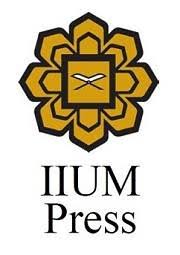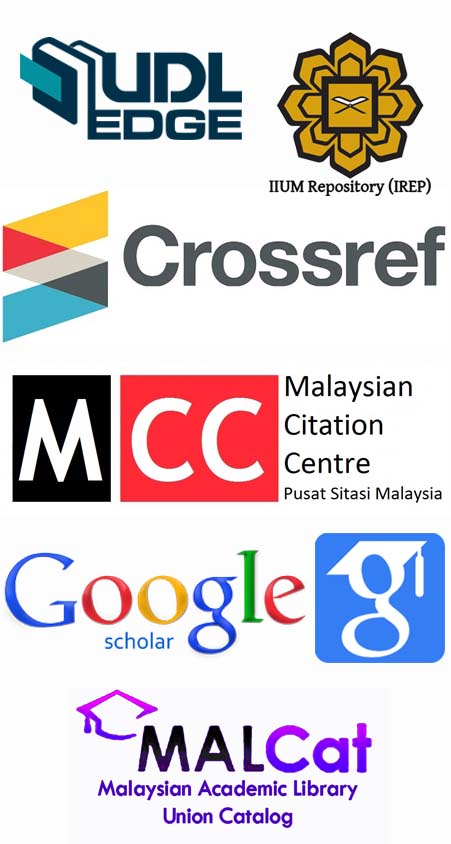Translating the Knowledge of Qurʾān and Sunnah into Action: The Islamisation Project of IIUM
DOI:
https://doi.org/10.31436/alburhn.v3i1.134Keywords:
International Islamic University, Islamisation, integration, modernisation, scriptural basisAbstract
Abstract: This study attempts to analyse the role of the International Islamic University in achieving Islamisation and in bringing out an integrated curricular and educational program aiming for the holistic development of the ummah and institutions at all levels of society. It also offers profound analysis of the universal values and teachings the University had imparted and its function to provide a broad spectrum and avenue for potential human growth and in driving the intellectual reform and constructing ummatan wasaṭa (the balanced community) based on Islamic worldviews, norms, principles and values in realizing Islamization process. The study also dealt specifically with the vision of the University, as enshrined in its constitution that define her character, psyche, culture and direction. It also turns to discuss specific intellectual and spiritual challenges that the modern world had posed to contemporary Muslim and the role that the University can play in providing the means to answer these challenges.
Downloads
References
Abū Dāwūd, Sulaymān ibn al-Ashʿath, al-Sajistānī. (2003). Sunan Abī Dāwūd. Riyadh: Dar al-Maʿrifah.
Abu Sulayman, A. H. (1997). Crisis in the Muslim Mind. Lorenzo, Yusuf Talal (trans.). Herndon: International Institute of Islamic Thought.
al-Attas, S. M. N. (1987). Islam And Secularism. Kuala Lumpur: Muslim Youth Movement of Malaysia (ABIM).
al-Attas, S. M. N. (1995). Prolegomena to the Metaphysics of Islam. Kuala Lumpur: International Institute of Islamic Thought and Civilization (ISTAC).
al-Attas, S. M. N. (1999). The Concept of Education in Islam. Kuala Lumpur: International Institute of Islamic Thought and Civilization (ISTAC).
al-Attas, S. S. (1996). Islam and the Challenge of Modernity. Kuala Lumpur: International Institute of Islamic Thought and Civilization (ISTAC).
al-Faruqi, I. R. (1981). Social and Natural Sciences: The Islamic Perspective. Abdullah Omar Naseef (ed.). Jeddah: King Abdulaziz University.
Ali, M. M. (2000). Modern Islamic Movements: Models, Problems and Prospects. Kuala Lumpur: A.S. Noordeen Publications.
Ali, M. M. (2014) ‘Islamisation of Human Knowledge: An Analysis of Methodological Issues.’ Journal of Islam in Asia, 11(1), 186-208.
al-Ṭabarī, Muḥammad ibn Jarīr. (1992). The History of al-Tabari Vol. 12: The Battle of al-Qadisiyyah and the Conquest of Syria and Palestine A.D. 635-637/A.H. Friedman, Yohanan (trans.). New York: SUNY Press.
Farooqui, J. (2000). Towards an Islamic Sociology. Kuala Lumpur: International Islamic University Malaysia.
Hashim, R. and Abdallah, S. S. (2013). ‘Islamisation of Human Knowledge in Theory and Practice: Achievements, Challenges and Prospects in the IIUM context.’ IIUM Journal of Educational Studies, 1(1), 1-12.
Hassan, M. K. (1996). Towards Actualizing Islamic Ethical and Educational Principle in Malaysian Society: Some Critical Observation. Petaling Jaya: Muslim Youth Movement of Malaysia (ABIM).
Hassan, M. K. (2013). “Islamisation of Human Knowledge” in Islamic Economics Education in Southeast Asian Universities. Mohd Nizam Barom et. al (eds.). Kuala Lumpur: Centre for Islamic Economics, IIUM and International Institute of Islamic Thought, pp. 13-51.
Hassan, M. K. (2013). Malay Intelligentsia’s Quest for an Islamic University and the Future of “Islamisation of Human Knowledge” in International Islamic University Malaysia. In UIAM The Premier Global Islamic University. Zaleha Kamaruddin, Abdul Rashid Moten (eds.). Kuala Lumpur: IIUM Press.
Hassan, M. K. Intellectual Discourse at the end of the 2nd Millennium: Concerns of a Muslim Malay CEO. Kuala Lumpur: International Islamic University Malaysia.
Idid, S. A. (ed.) (2009). IIUM at 25 The Path Travelled and The Way Forward. Kuala Lumpur: IIUM Press.
Irfan, A. H. F. (2001). Religious Thought and the Challenge of Modernity. Kuala Lumpur: International Islamic University Malaysia.
Ljevakovic, S. (2013). Instructional Strategies and Challenges in the Implementation of the Integrated Curriculum (IC): A Study of UIAM Faculty Member. (Master Dissertation, Institute of Education, International Islamic University Malaysia).
M. Zein, I. (2011). ‘Religions As a “Life Fact”: Al-Faruqi’s Impact on the International Islamic University Malaysia’. The American Journal of Islamic Social Sciences, 28 (3), 53-74.
Mohd. Amin, R., Abdullah Yusof, S. and Aslam Haneef, M., ‘The Effectiveness of an Integrated Curriculum: The Case of International Islamic University Malaysia.’ In Proceeding of the 8th International Conference on Islamic Economics. Centre for Islamic Economics and Finance, Qatar Faculty of Islamic Studies, Qatar Foundation, 1-20.
Nasr, S. H. (1987). Islam and the Plight of Modern Man. Kuala Lumpur: Foundation Traditional Studies.
Shogar, I. A. (2014). ‘Reflection on UIAM Philosophy of Education in a Historical Context.’ Revelation and Science, 4 (2), 29-40.
Downloads
Published
How to Cite
Issue
Section
License
In general, reusing or reproducing substantial portions of al-Burhān content requires permission. This includes the use of text, figures, tables, multimedia content, and any other material published in any issues of al-Burhān Journal of Qur'an and Sunnah Studies. For some instances, al-Burhān may make its content freely viewable; however, such material may require permission for reuse. To seek permission, please contact the editorial.









